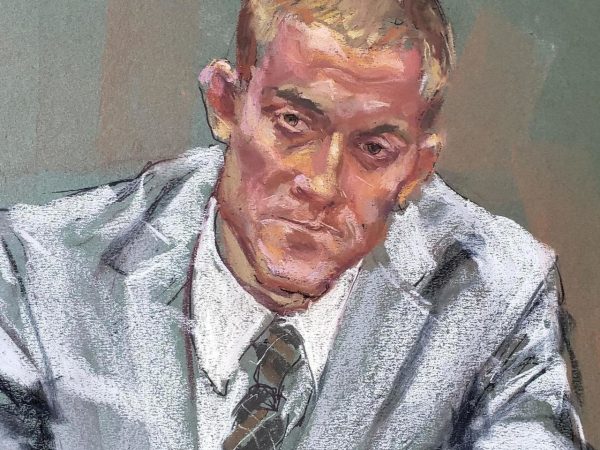“He was found guilty on all three counts.”
I stopped listening to the rest of the article my friend was reading aloud as a high pitched ringing pierced through my ears. It was deafening. The world turned muted grey as I stared out the car window into what was once a turquoise blue ocean.
“All three counts?” I repeated back to him. Yes, I heard it correctly the first time.
This is what the nation was waiting for with baited breath, mobs of people poised and ready to burn cities to the ground or celebrate in their streets depending on the verdict heard round the world. This is what the collective wanted, what they said was right and just. So why don’t I feel a sense of relief?
I slow down and feel the breaking in my heart. Am I a bad black person because I feel compassion for this man? I’m supposed to hate him, want to make an example of him through punishment that perpetuates a cycle of violence and victimization. It’s a compelling and convenient position – compelling because it’s an emotional perspective that tugs on my heartstrings, and convenient because it removes the burden of admitting I have any power or volition that would allow me to think for myself – but it only addresses a symptom rather than the root cause of what’s not working in our society.
Regardless of if Chauvin felt compassion for Floyd, who died under his watch, I feel compassion for the both of them. Compassion is not a byproduct of Hammurabi’s Code, it doesn’t operate within an “eye for an eye” framework. Compassion is what naturally arises when the body is soft and sensitized, feeling whatever is there to feel, be it love or pain or a mix of the two. We think love is void of pain but that’s not true, love is big enough to hold both of them. Healing is an ecology, a delicate and resilient system that operates by the laws of nature where all living things are interdependent. If one organism lacks the conditions to thrive, the entire ecosystem is at risk. On the basis of that reality, my healing doesn’t come from watching another’s suffering, that only leads to more suffering.
Being alive is often more dynamic and complex than what’s defined in the script of right and wrong. I understand the comfort that can be taken in the rhetoric that what Chauvin did was wrong and should be punished in the most severe way, but is this comfort worth the cost of liberation? For me, it’s not. And I don’t think I’m the only one who feels that way.
This case is not as black and white as we would like to believe. I’m not saying Chauvin should walk away like none of this ever happened. Right and wrong are a matter of opinion but consequences are a law of nature. All actions have consequences, be them positive or negative. I don’t know what the resonant consequences would be for Chauvin. Sadly, I don’t think our current menu of options offer the type of transformation and healing we long for.
Whether it’s a life sentence or a two year sentence, that man is going to have a rough time in prison. With such a high profile case, I imagine other men in prison will be hunting him down. Maybe he’ll be kept in solitary confinement for most of his sentence, growing hardened as the last layers of humanity are flayed off him. So with this outcome, the victim became a martyr and his perpetrator became a victim. One man lost his life and another lost his humanity, and we call this justice.
Locking Chauvin up for a lifetime may help ensure he can’t behave like this again out in the public but it doesn’t actually restore his humanity or dignity, the very ingredients that would offer a true transformation from the inside out. The type of transformation that creates the conditions as such that he could never snap and abandon himself again while kneeling on someone’s neck for 8 minutes. The type of transformation that has him confront the anger and rage that gets suppressed until it lashes out unconsciously. The type of transformation that trains him to approach his own internal state with more attention and care so that he can walk other police officers in need through the same journey. When something tragic can be the catalyst for a deep healing at the individual level with ripple effects that reach far and wide, that is the type of justice I want to see in our world.
So I leave you with this question, do we seek vengeance or restoration? How we answer as a collective will determine where we go from here.

 Get access to the monthly Rehumanization Magazine featuring contributors from the front lines of this effort—those living on Death Row, residents of the largest women’s prison in the world, renowned ecologists, the food insecure, and veteran correctional officers alike.
Get access to the monthly Rehumanization Magazine featuring contributors from the front lines of this effort—those living on Death Row, residents of the largest women’s prison in the world, renowned ecologists, the food insecure, and veteran correctional officers alike.